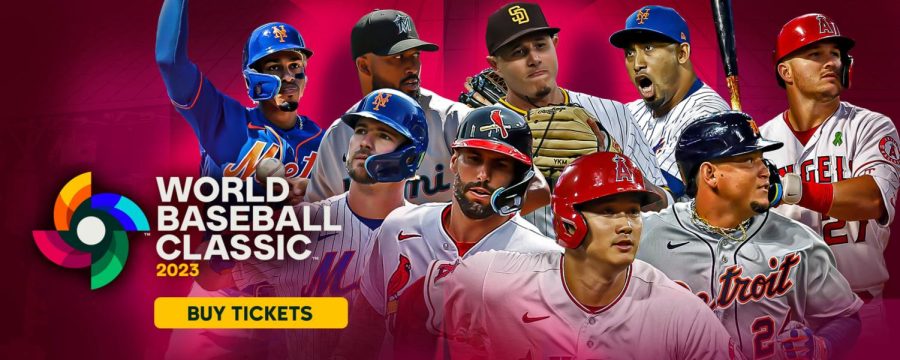What the WBC Got Right About Baseball
It’s been two months (and nine days, if you’re counting) since Samurai Japan won their third World Baseball Classic in a tense tilt against possibly the best lineup the United States has ever rolled out in international competition.
I’ll do you the decency of wearing my heart on my sleeve: I cheer against the US in nearly every international competition, and that applies twice over in baseball, where the US has been happy to entrench its monopoly on the highest level of play by sitting back and absorbing talent from all over Latin America,* and that applies twice over after two successive World Baseball Classics where my own country’s team has been the runner-up.
When the Puerto Rican team pitched a perfect game** against the Israeli side, I thought it had to be Team Rubio’s year—it had to be, third time’s the charm, just when I thought I was out, etc.—and then they lost in agonizing fashion to Mexico, a team that rode Knockout Play Randy Arozarena all the way to a fabulously-merited third place. That’s baseball, and that’s what I get for forgetting what baseball is like.
You know what, though? I liked being reminded of it, even if it was on the losing side.
After keeping up with the 2006 and 2009 editions, including going to a game in one of them, I’d missed out on the previous two Classics, and thanks to being in touch with more baseball fans than I ever had been, I was able to engage with this one almost constantly. The spectacle of the world’s best players, temporarily liberated from their petty teams to compete for the pride of their nations, far outlasted any transient sadness about my preferred team not making it to the end. So did the fun of cheering for a team alongside people who, just a couple weeks later, would be sworn enemies of mine during the actual baseball season.
After all, it was a special Classic. Beyond Mexico making it to the podium for the first time—baseball fans who read this, you should be following Mexican baseball much more closely than you are—and the hilarious occurrence I already mentioned of the Czech Republic’s amateurs knocking out Spain’s team of middling major league talent back in the preliminary stage, this was a pretty special tournament. The Netherlands, a traditional WBC powerhouse, fell before Italy; Australia and their unexpectedly-green-and-yellow uniforms outlasted South Korea; and the Dominican Republic, whose lineup was supposed to be the death of every team they faced, didn’t even make it out of pool play, thanks to Puerto Rico and an undefeated Venezuela.
Heck, Cuba got pasted 14-2 by the United States in the semifinals. That wasn’t supposed to happen, not when Cuba had finally been able to include MLB players in its roster.
I’ll even admit that the ending was kind of cool. Look, I’ll be honest with you: I’m one of like five baseball fans that doesn’t think Shohei Ohtani is baseball’s answer to the Second Coming. He’s an immensely talented ballplayer and I’m glad I live in a time where I get to see him play, but I instinctively recoil from anything everyone tells me I have to like. But the moment we knew the finals would be Japan versus the United States, almost every other fan wanted to see Ohtani take on his teammate Mike Trout, and that’s exactly what the Classic gave them. That’s something no other competition could’ve done.
Once upon a time, the WBC wouldn’t have done that either. Baseball, as the wags like to point out, moves slowly, but I prefer to think of it as moving tectonically, and the effort to market it as an international sport has finally reached a point where it’s gathering force. Who knows how the landscape will have shifted by 2026?
* Japan and Korea have actual leagues with whom MLB teams are required to negotiate for players; there’s nothing like that in Cuba, the Dominican Republic, Puerto Rico, Venezuela, Nicaragua or Panama, and the Liga Mexicana de Béisbol is considered a minor league and has a very different agreement with MLB to its parallels in Asia.
** Yeah, it was eight innings, because Martín Maldonado scored the run that put the mercy rule into effect. They didn’t allow a baserunner at any point in that. The guy who pitched the first 5.2 innings didn’t have a major-league contract when he did it. What are you, a narc?
